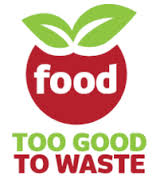
Courtesy of Tama Becker-Varano; for more Zero Waste tips, email Tama at Tamambv@msn.com:
I recently attended the 3rd annual Zero Waste Symposium. The primary focus of this year’s event was to highlight steps currently underway to achieve San Diego’s Zero Waste plan by 2040. The spectrum of speakers ranged from City agencies, community partners, and national non-profits to for-profit waste management companies and restaurateurs.
Collectively, they are helping to reshape the concept of “what is waste”. While innovation and forward thinking are integral to the future success of the City’s plan, there is a concerted effort centered on the significant benefits of simple conservation. I would love to go on and on about a Zero Waste lifestyle, but food recovery is specifically high on the list of low hanging fruit and the theme of this year’s Earth Day – so let’s start there.
In the US, 40% of food is thrown away somewhere between farm to fork. Not only is this a tremendous waste of food, but when we also consider the massive waste of resources including energy, water, and land, it becomes obvious that this upward trend is not sustainable or responsible. The tragic irony is that 1 in 6 Americans lack food security, most of them children.
We can all be part of the solution, so here are some ideas and resources to guide you on a path toward Zero Waste in your home, community, school, workplace, and ultimately our wonderful City.
- Speaking of low hanging fruit, many UC homes are experiencing stellar crop yields from their citrus trees this year. If your green thumb generates more fruit and/or vegetables than your family can eat in one season, the app NextDoor offers an easy way to let your fellow UC neighbors know you would like to share your bounty.
- Beyond sharing with neighbors, there are local organizations, such as Senior Gleaners of San Diego County and Harvest Crops that will either come and glean your trees or offer a drop off location. The produce is then distributed to low income families and seniors.
By making small shifts in how we shop, store and prepare food, we can keep the valuable resources used to produce and distribute food from going to waste. As with all Zero Waste mantras, “Reduce” is where our journey begins:
- Meal Planning – By buying no more than what you expect to use, you will be more likely to use it up and keep it fresh.
- Shop your fridge and cupboards first to avoid buying food you already have.
- Choose loose fruit and vegetables over pre-packaged to better control the quantity you need and ensure fresher ingredients.
- Buy bulk grains, beans, and pastas to purchase only quantities needed.
- Ask for and buy “imperfect” fruit and vegetables. Some grocers are already offering them. Nearly 50 percent of healthy high-quality produce is wasted before even reaching grocery stores because it is blemished or oddly shaped.
- Keep the stems and tops – The leafy green stems or tops to vegetables such as beets, radishes, turnips, carrots, broccoli, and cauliflower usually end up in the compost pile or trash can, but they’re actually delicious and nutritious to eat. Eat the skin too – Vegetable skins are packed with nutrients and fiber.
- Plan an “eat the leftovers” night each week.
- Closed Loop Cooking/Repurpose scraps – Scraps from meal preps are great for making soup stock, flavored water, etc. A single ingredient can have many lives. For example, turn those peels into lemon pepper after making lemonade.
- Don’t have time for meal planning and lists, there are free mobile apps and web-based tools to make it easier.
- Food Storage Guide / Eat Me First Prompt.
When you get home from the store, wash, dry, chop, dice, slice and place your fresh food items in clear reusable storage containers for snacks and easy cooking.
- Write down the date opened or frozen with a permanent marker.
- Befriend your freezer and visit it often. Freeze food such as bread, sliced fruit, or other food that you know you won’t be able to eat in time.
- Create a label titled “Eat First” and designate an area in the refrigerator for food that should be eaten relatively soon to prevent spoiling.
- Apart is better than together – Many fruits give off natural gases that cause nearby foods to ripen and spoil faster. Store fruits, such as ripe bananas, avocados, apples, and tomatoes away from other produce.
- Re-grow what you can’t reuse – Some vegetables are like magic and re-grow themselves with just a little bit of help, such as onions, garlic, and mushrooms.
- Pickle your produce – Homemade pickled and fermented vegetables are both delicious and good for you.
- Still Tasty – Learn the difference between “sell-by”, “best-by”, and expiration dates at www.stilltasty.com.
To the extent that some of your produce still spoils, be sure to compost it. Instead of sending this waste to the landfill, convert it to compost right in your own backyard and eventually add the nutrients to your soil.
To access online links related to minimizing food waste, visit:
- San Diego Food System Alliance http://www.sdfsa.org/events/
- ReFed http://www.refed.com/?sort=economic-value-per-ton
- I Value Food http://ivaluefood.com/
- Senior Gleaners of San Diego County http://www.seniorgleanerssdco.org/about
- Harvest Crops http://harvestcrops.org/
To view related posts, visit https://www.universitycitynews.org/category/university-city-news-ucca/
Notes: Join UCCA today at https://www.universitycitynews.org/join-ucca-today/
If you have a news item to share, please submit your story through UCCA’s Contact Us link at https://www.universitycitynews.org/contact-us-or-volunteer-in-uc/
Review article guidelines at https://www.universitycitynews.org/ucca-newsletter-archives/
What do Facebook, Twitter, Nextdoor, ImproveUC and UCCA have in common? They are all ways neighbors can connect with neighbors and the University City community. Create a post, start a conversation, share the news, organize an event, keep in touch, take a look:
- Facebook – https://www.facebook.com/universitycitycommunityassociation
- Twitter – https://twitter.com/UCCA_SD
- Nextdoor– https://nextdoor.com/sandiego/
- ImproveUC– http://improveuc.org/
- UCCA – https://www.universitycitynews.org/

